|

by Owen Jacques
February 06, 2023
from
ABC Website
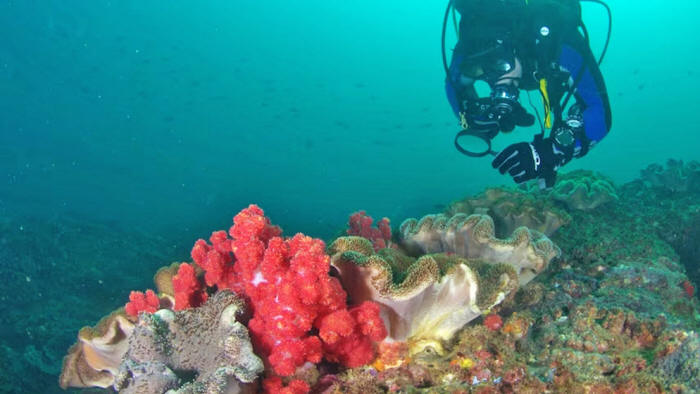
A diver takes a closer look
at a coral reef off the Sunshine Coast,
which is far more abundant
than experts expected.
(Supplied: Chris
Roelfsema)
Key points:
-
UQ researchers and dive club volunteers set out to examine the reefs
to keep them busy through COVID restrictions
-
The coral found off the Sunshine Coast was 54 per cent beyond what
was expected
-
The lead researcher hopes more people visit the area to explore the
coral and ensure it is protected
Researchers have uncovered an abundance of healthy,
thriving coral
along a heavily developed coastline - far beyond what the team
expected when they first pitched the project.
University of Queensland researchers and dive club volunteers wanted
a project to focus on as COVID restrictions took hold and limited
their ability to work and travel.
A pitch was made to re-examine 11 reefs off Queensland's Sunshine
Coast, particularly around
Mudjimba Island and the popular tourist
destination of
Mooloolaba.
Associate Professor Chris Roelfsema brought together researchers and
50 volunteers from the UQ dive club to help.
Dr. Roelfsema said what they found was incredible.
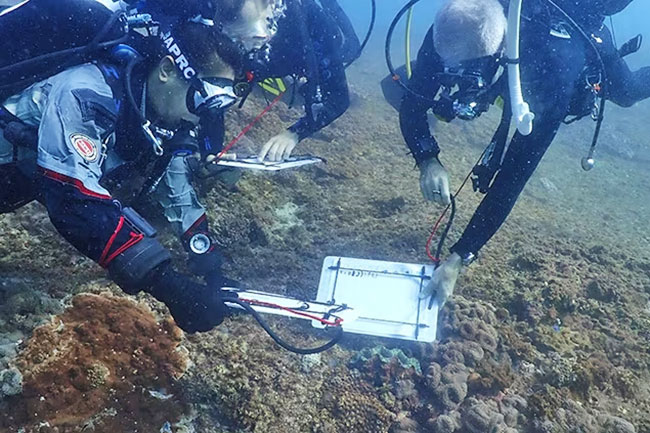
A group of divers and researchers
survey reefs off the Sunshine
Coast
as part of a two-year project.
(Supplied: Chris Roelfsema)
"We looked at so many different sites
- every time we put our heads
underwater, the volunteers went down and they did surveys," he said.
"And they saw coral, and every time it was a significant amount of
coral, and we didn't expect it.
"We noticed that there was an enormous amount of coral there that we
didn't realize was there - and not in a couple of spots but in the
11 spots we visited.
"And that's a big deal that there's so much coral so close to a
major urban area."
He estimated the coral cover was 54 per cent beyond what was
expected.

Beachgoers at Mooloolaba in 2020,
not far from where divers surveyed
the reefs.
ABC
News: Tara Cassidy
From COVID to coral discovery
Dr. Roelfsema said the project was a chance for divers to escape the
stress of
COVID while learning more about local waters.
"The challenges of COVID required us to do something positive with
our time because we couldn't travel as much and we couldn't do as
much," he said.
"We wanted to take care that people were distracted from all the
stress resulting from COVID.
"The other thing is that we all are eager to help the marine
environment and to take care of local reefs."
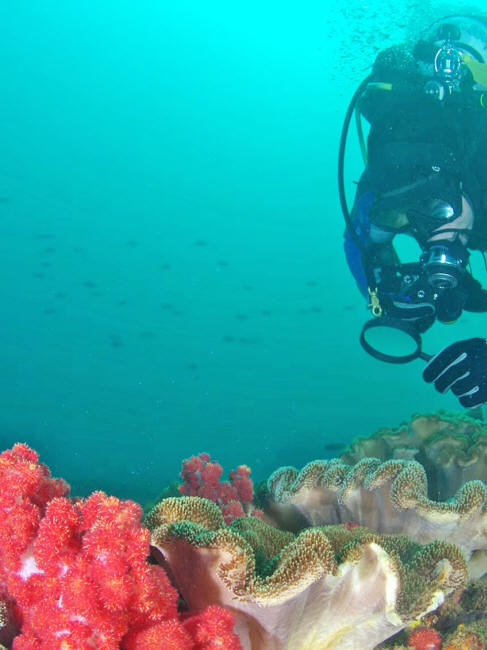
Researchers say
there is 54 per cent more coral
in the area than
first thought.
(Supplied: Chris Roelfsema)
The project involved 8,000 hours of training, collecting, and
analyzing data obtained from the underwater landscapes.
"They basically can
show and take care of their local reefs and show how important
they are," Dr. Roelfsema said.
Beyond simply the amount of coral revealed by the two-year survey,
the team also found little sign of crown-of-thorns starfish - which
prey on coral - and almost no hint of coral bleaching.
Dr. Roelfsema said he hoped the findings encouraged more people to
explore the reefs and coral along the Sunshine Coast and ensure
their protection.
"It creates awareness with the local community and may also further
attract people to visit these areas, and realize how beautiful they
are, how important, and how great the fish life is."
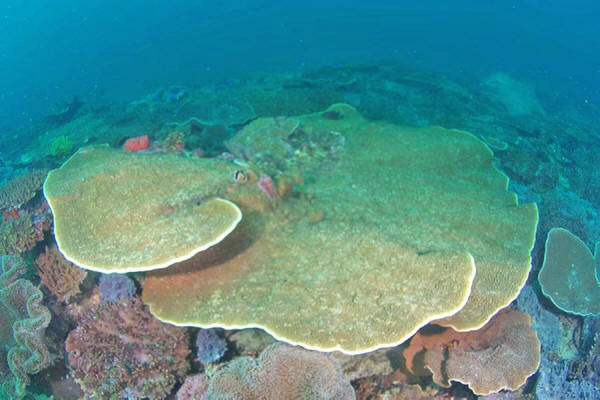
An abundance of thriving coral
was found off popular
Sunshine Coast beaches.
(Supplied: Chris Roelfsema)
World's Coral Reefs
Not
Declining
- New
Paper Reveals -
by Dr. Benny Peiser
February 08,
2023
from
ClimateChangeDispatch Website
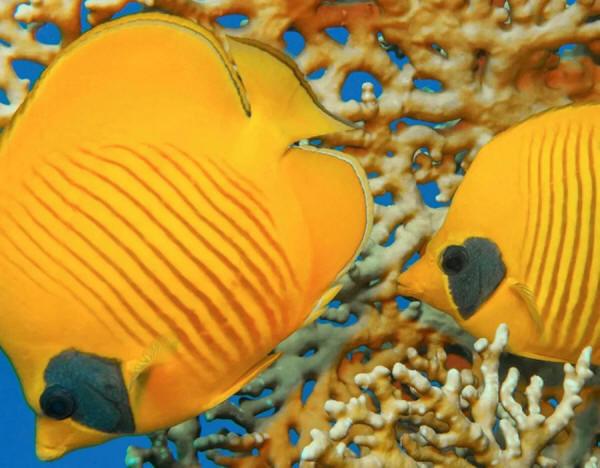
A new paper (Coral
in a Warming World - Causes for Optimism)
published by the Global Warming Policy Foundation refutes
alarmist claims about the state of the world's coral
reefs.
According to the
author, eminent reef scientist Peter Ridd, the
official data show no signs of any
long-term trends in reef health.
Indeed,
the best records - for
Australia's Great Barrier Reef -
suggest that
coral cover is at record highs.
Dr. Ridd said:
"The public is
constantly told that
reefs are being 'irreparably damaged' by
global warming, but
bleaching events, about which there is so
much doom-mongering, are simply
corals' natural response to changes in the environment.
They are an
extraordinarily adaptable lifeform, and
bleaching events are almost
always followed by rapid recovery."
Dr. Ridd suggests
that rather than being seen as under threat from climate change,
corals should actually be recognized
as one of the organisms least likely to
suffer harm in a 'warming' world.
"Corals get
energy from a symbiotic relationship with various species of
algae.
When
environmental conditions change,
they [coral] can rapidly switch
to a different species that is better suited to the new
conditions.
This
shapeshifting means that most
setbacks they suffer will be short-lived."
Dr. Ridd says that
the
real risks to reefs come from
overfishing and
pollution.
The GWPF invited
responses to this paper from authors likely to dissent from its
conclusions. None of the authors who were contacted accepted this
invitation.
|







